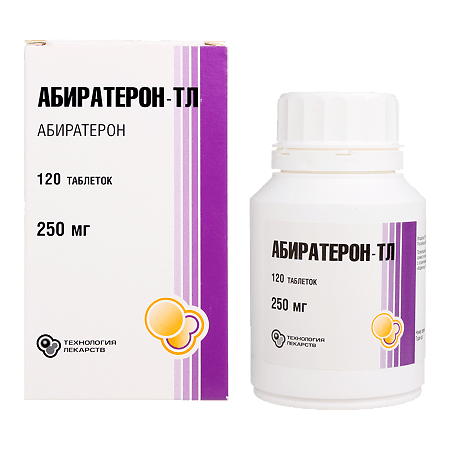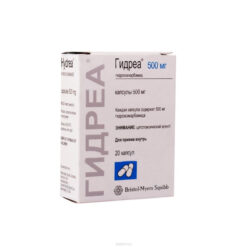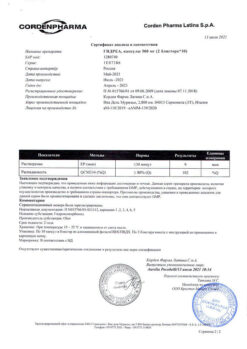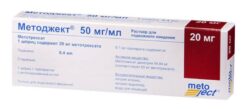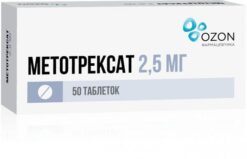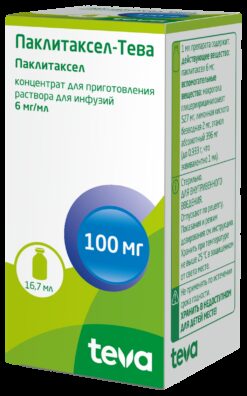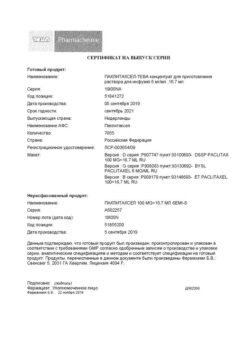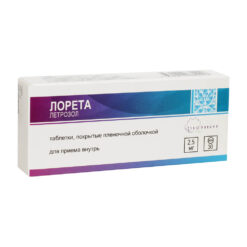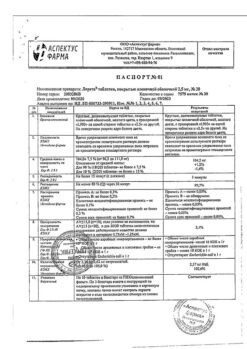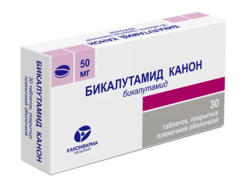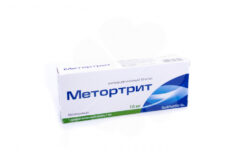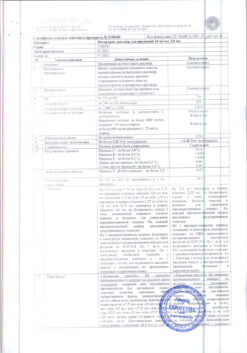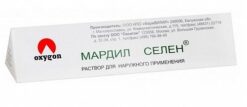No products in the cart.
Description
The drug Abiraterone-TL in combination with prednisolone is designed to treat metastatic castration-resistant prostate cancer.
Active ingredient
Active ingredient
Composition
Composition
How to take, the dosage
How to take, the dosage
The recommended daily dose of Abiraterone TL is 1000 mg (4 tablets of 250 mg) once daily 1 hour before a meal or 2 hours after a meal. The tablets should be swallowed whole, without chewing, with a small amount of water.
The drug Abiraterone-TL is used together with low doses of prednisolone. The recommended dose of prednisolone is 10 mg/day.
Abiraterone-TL should not be taken with food.
It is not recommended to eat within 1 hour after taking the drug.
People should measure serum transaminase activity and bilirubin concentration every 2 weeks for the first 3 months of treatment and monthly thereafter. Blood pressure, blood potassium concentration, and degree of fluid retention should be assessed monthly. If another daily dose of Abiraterone-TL is missed, prednisolone should be taken the next day with the usual dose of the missed drug.
Dose adjustment in patients with hepatic impairment
Dose adjustment in patients with mild hepatic impairment is not required. There are no data on the efficacy and safety of abiraterone acetate when used repeatedly in patients with moderate to severe hepatic impairment (Child-Pugh class B or C), so it is not possible to predict the dose adjustment required. Abiraterone-TL should not be administered to patients with moderate to severe hepatic impairment. If during the treatment by the drug the patients showed the signs of hepatotoxicity (increase of alanine aminotransferase (ALT) or aspartate aminotransferase (ACT) activity 5 times higher than the upper limit of normal, or bilirubin concentration 3 times higher than the upper limit of normal), the therapy should be immediately stopped until liver function parameters normalize.
Retreatment in patients with normalized liver function parameters can be started with a reduced dose of 500 mg (2 tablets) once daily. In this case, monitoring of serum transaminase activity and bilirubin concentration should be performed at least every 2 weeks for 3 months and then monthly. If signs of hepatotoxicity occur at a dose of 500 mg, therapy with Abiraterone-TL should be discontinued.
If patients develop severe hepatotoxicity during any period of therapy (ALT or ACT activity exceeds the upper limit of normal by 20 times), Abirateron-TL should be discontinued. Re-prescription of the drug in such patients is not possible.
Patient special groups
Patient use in patients with hepatic impairment
In patients with mild hepatic impairment before treatment (class A according to Child-Pugh classification), no adjustment of the drug dose is required. Abiraterone-TL should not be administered to patients with moderate to severe hepatic impairment (Child-Pugh grades B and C).
Use in patients with renal impairment
Dose adjustment is not required for patients with impaired renal function. However, Abiraterone-TL should not be used in patients with prostate cancer with severe renal impairment because there are no clinical data about the use of Abiraterone in these patients.
Children
The use of Abiraterone-TL is not appropriate for children because this age group does not have prostate cancer.
Interaction
Interaction
Potential effects of other drugs on the effects of abiraterone
In a study of the pharmacokinetic interaction of the strong CYP3A4 isoenzyme inducer rifampicin at a dose of 600 mg/day for 6 days followed by abiraterone acetate at a single dose of 1000mg in healthy volunteers, the mean plasma AUCâ of abiraterone was reduced by 55%. Avoid co-administration of Abiraterone TL and strong inducers of CYP3A4 isoenzyme (e.g., phenytoin, carbamazepine, rifampicin, rifabutin, rifapentine, phenobarbital, St. John’s wort). Administration of this group of drugs is possible only after careful evaluation of clinical effectiveness.
In clinical studies of pharmacokinetic drug interactions in healthy volunteers, the use of ketoconazole, a strong CYP3A4 isoenzyme inhibitor, had no clinically significant effect on the pharmacokinetics of abiraterone.
Potential effects of abiraterone on the effects of other medications
Abiraterone inhibits hepatic CYP2D6 and CYP2C8 isoenzymes involved in drug metabolism. In a clinical study determining the efficacy of abiraterone acetate (plus prednisone) per dose of the CYP2D6 substrate dextromethorphan, the systemic exposure to dextromethorphan increased approximately 2.9-fold. The AUC24 for dextrorphan, the active metabolite of dextromethorphan, increased by approximately 33%.
Abiraterone should be used with caution in patients receiving drugs that are metabolized by the CYP2D6 isoenzyme, especially those with a narrow therapeutic index. In these cases, consider reducing the dose of drugs with a narrow therapeutic index that are metabolized by CYP2D6, including metoprolol, propranolol, desipramine, venlafaxine, haloperidol, risperidone, propafenone, flecainide, codeine, oxycodone and tramadol.
In the same study, no systemic effects of the theophylline substrate were observed when determining the efficacy of abiraterone acetate (plus prednisone) per dose of CYP1A2 substrate theophylline.
In a CYP2C8 drug-drug interaction study in healthy volunteers, the AUC of pioglitazone was increased by 46% and the AUCS of M-III and M-IV, each of the active metabolites of pioglitazone, was reduced by 10% when pioglitazone was given together with one dose of abiraterone acetate 1000 mg. Although these results indicate that no clinically significant increases in exposure are expected when abiraterone is used in combination with other drugs that are eliminated predominantly by CYP2C8, patients should be monitored for signs of toxicity associated with the CYP2C8 substrate with a narrow therapeutic index when used concomitantly with abiraterone.
Drugs that may prolong the QT interval
. Because androgen deprivation therapy may result in prolongation of the QT interval, caution is recommended when using abiraterone with other medications capable of prolonging the QT interval or medications may cause ventricular pirouette tachycardia, such as class IA antiarrhythmic drugs (e.g. quinidine, disopyramide) or class III drugs (e.g. amiodarone, sotalol, dofetilide, ibutilide), methadone, moxifloxacin, antipsychotic drugs, etc.д.
Co-use with spironolactone
Spironolactone binds to androgen receptors and may contribute to elevated PSA concentrations. The use of spironolactone is not recommended in patients taking abiraterone.
Special Instructions
Special Instructions
The blood pressure, plasma potassium concentration and degree of fluid retention should be monitored at least once a month.
Hepatotoxicity and liver function impairment
In clinical trials, a marked increase in liver enzyme activity has been reported that required cancellation or adjustment of the drug dose. Serum transaminase and bilirubin activity should be measured before starting abiraterone, every 2 weeks during the first months of treatment, and monthly thereafter.
If clinical symptoms and signs suggestive of impaired liver function develop, serum transaminase activity should be measured immediately.
If ALT or ACT activity is 5 times the upper limit of normal or bilirubin concentrations are 3 times the upper limit of normal, abiraterone should be stopped immediately and liver function carefully monitored. Abiraterone should not be used again until liver function has returned to baseline values, and only if lower doses are prescribed.
If patients develop severe hepatotoxicity during any period of therapy (ALT or ACT activity exceeds 20 times the upper limit of normal), abiraterone should be stopped. Re-prescribing the drug in such patients is not possible.
Dose adjustment in patients with mild hepatic impairment is not required. There are no data on the efficacy and safety of repeated use of abiraterone acetate in patients with moderate to severe hepatic impairment (Child-Pugh class B or C), so the need for dose adjustment cannot be predicted. Abiraterone TL should not be administered to patients with moderate to severe hepatic impairment.
Women of childbearing age
Abiraterone is not indicated for use in women. It is suspected that taking CYP17 inhibitors in pregnant women will change hormone concentrations, which may affect fetal development. To prevent accidental exposure, pregnant or fertile women should not handle the drug without gloves.
Contraception in men and women
It is not known if abiraterone or its metabolites are present in semen. A condom must be used if intercourse with a pregnant woman is planned. If intercourse is planned with a woman of childbearing age, a condom must be used along with other effective contraceptive methods.
Confertility
There have been no studies of the toxic effects of abiraterone acetate on the reproductive system and no data on the effect of the drug on the ability to conceive.
Pregnancy and lactation
Abiraterone is not used in women. There are no data on the use of the drug in pregnant women. Abiraterone TL is contraindicated in pregnant women and women who can become pregnant. It is not known whether abiraterone acetate or its metabolites are excreted with milk.
Glucocorticosteroid withdrawal and stress management
When withdrawing prednisolone, caution should be exercised and signs of insufficient adrenal cortical function should be monitored. If abiraterone is continued after glucocorticosteroid withdrawal, the appearance of symptoms of mineralocorticoid excess should be monitored. In patients receiving prednisolone when stressful situations develop, an increased dose of glucocorticosteroids may be required before, during, and after a stressful situation.
Bone density
In men with metastatic castration-resistant prostate cancer, decreased bone density may be observed. This effect may increase with concomitant use of abiraterone and glucocorticosteroids.
Previous use of ketoconazole
Patients who have previously received ketoconazole for prostate cancer therapy may be expected to have a lower response rate to abiraterone therapy.
Hyperglycemia
The use of glucocorticosteroids can lead to hyperglycemia, so blood glucose concentrations should be measured frequently in patients with diabetes.
The concomitant administration of abiraterone and chemotherapy
The safety and effectiveness of concomitant administration of abiraterone and cytotoxic chemotherapy have not been established.
Impacts on the musculoskeletal system
In cases of myopathy have been reported with the use of abiraterone. Rhabdomyolysis with renal failure has been observed in some patients. In most cases, these conditions developed during the first month of treatment, and recovery occurred after withdrawal of abiraterone. Caution should be exercised when using abiraterone concomitantly with other drugs that may cause myopathy/rhabdomyolysis.
Information on some excipients in the drug Abiraterone-TL
The drug contains lactose. Abirateron TL should be used with caution in patients with lactose intolerance, lactase deficiency or glucose-galactose malabsorption. This medication contains more than 1 mmol (27.2 mg) of sodium in each dose (4 tablets), which must be taken into account when treating patients on a controlled sodium diet.
Impact on driving and operating ability
Abiraterone TL has no or negligible effect on the ability to drive and operate moving machinery.
Synopsis
Synopsis
Contraindications
Contraindications
Side effects
Side effects
Overdose
Overdose
Additional information
| Shelf life | 2 years. Do not use after the expiration date. |
|---|---|
| Conditions of storage | In the dark place at a temperature not exceeding 25 ° C. Keep out of reach of children. |
| Manufacturer | Farmland, Belarus |
| Medication form | pills |
| Brand | Farmland |
Related products
Buy Abirateron TL, tablets 250 mg 120 pcs with delivery to USA, UK, Europe and over 120 other countries.

